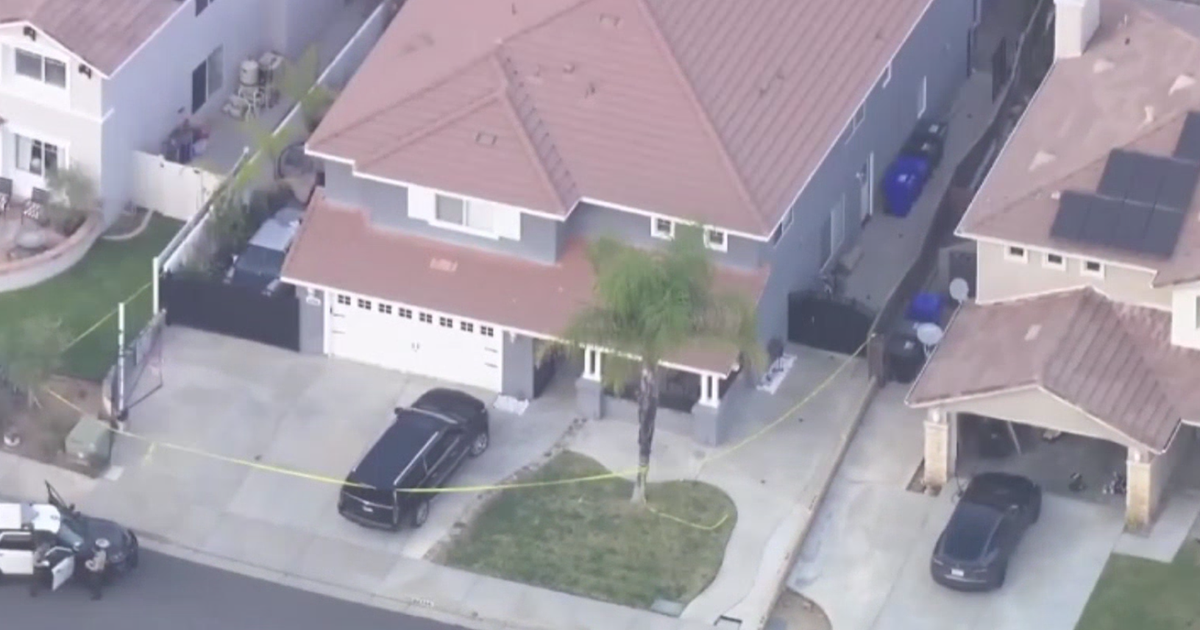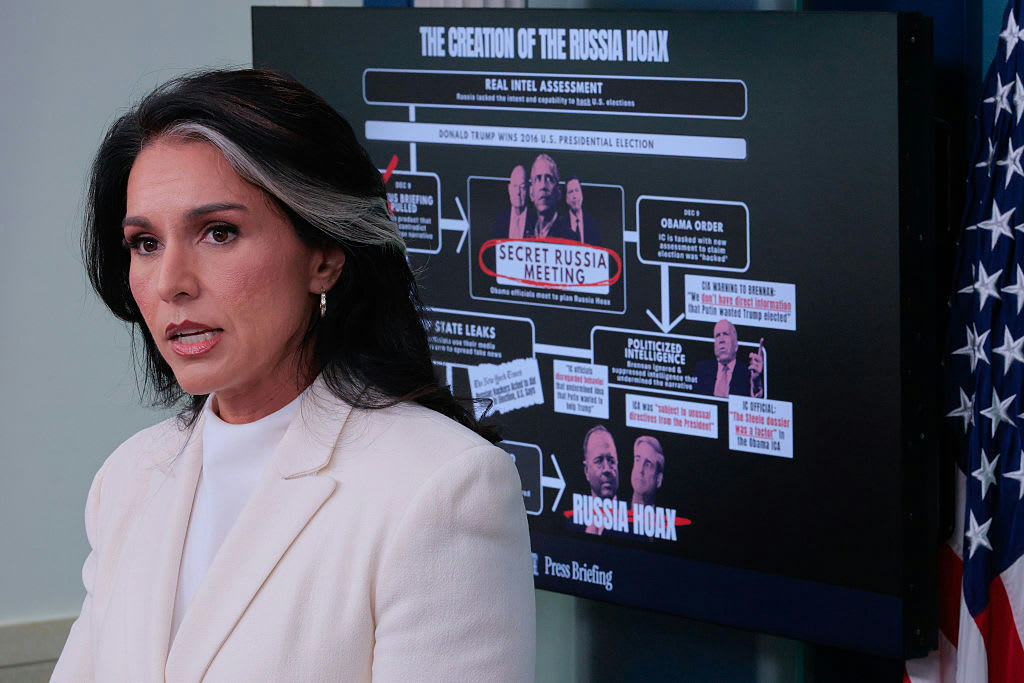Transcript: Chris Krebs on "Face the Nation," May 19, 2024
The following is a transcript of an interview with Chris Krebs, the former director of CISA and a CBS News cybersecurity expert and analyst, that aired on May 19, 2024.
MARGARET BRENNAN: And we're joined now by CBS News cybersecurity expert and analyst Chris Krebs, who is the former director of the Cybersecurity and Infrastructure Security Agency. Good to have you back.
CHRIS KREBS: Good to be back.
MARGARET BRENNAN: So in our polling that we just carried out in Arizona in particular, it was a center of election denialism back in 2020 and we're seeing this again. I mean, nearly half of Trump's supporters say the 2024 presidential results in Arizona should be investigated and challenged if Biden wins. Seven in 10 from those who identify themselves as "MAGA". Is this going to be a repeat of 2020? I mean, what's gonna happen?
CHRIS KREBS: Well, you know, all these claims are despite any credible evidence being presented in the courts or, you know, to everyone else and the experts out there. We're continuing to see claims of problems with 2020, even 2022, the midterms. So, I think the incentive structures, the way they're aligned right now, it creates plenty of room and a permissive environment for those to allege are problems, again, despite any credible evidence and continued investments in election security, election resilience, modernizing election systems. You know back in 2020 we talked about having 95% or so of ballots cast on paper. Now that number is probably closer to 98. We have made improvements over the last several years.
MARGARET BRENNAN: It's interesting you make that point about paper, because on the campaign trail Donald Trump claims 2020 was rigged. Claims 2024 might be as well. Listen to what he just said.
TRUMP: Our goal on election will be one day voting with paper ballots, proof of citizenship and voter ID. It's very simple. If you want to save America and your second amendment, register, get an absentee or mail in ballot, vote early, or vote on election day, I don't care.
MARGARET BRENNAN: So two things there. Now he is for mail-in ballots. He was against them in 2020, but you just said there already is a paper trail. He's saying there is none.
CHRIS KREBS: The vast majority of votes cast in the United States right now are with a paper trail. There is a small percentage that are recorded down on election– election systems, but that's for accessibility purposes, for those that may have visual impairment or otherwise. And it's important to ensure open and accessible voting processes. The one-day voting, this push, this drive, it's actually counterproductive. It actually is counter to participation in the democratic system and resilience and security. That longer runup, the weeks, months in advance of the election, allows us to detect if there are any issues, get on top and fix them. If you had an election on one single day, life happens, first, somebody might get sick, could get in a car accident, you might not be able to get to the polls. But if something happens early on, it could have this cascading, catastrophic impact on getting people to the polls and voting on election day. So I'm much more in favor of a– of the system we have now, with early voting, with mail-in and absentee ballots.
MARGARET BRENNAN: So the director of national intelligence, your successor at CISA Jen Easterly, also testified they are so prepared, election infrastructure has never been more secure. But then we also hear from U.S. intelligence, that China for example, is experimenting with things like generative AI to influence voters. How do people understand that influence effort versus actually tinkering with ballots?
CHRIS KREBS: I think that's the right distinction. There's interference, which is the technical manipulation of systems, and as Jen Easterly my successor at CISA said earlier this week in the Senate hearing, the investments we're making, the continued improvements across systems, it– I would even suggest that, you know, when, when we said in 2020 that it was a safe and secure election, it's even more safe secure now, because those continued investments, because the continued improvements across the systems. But to your point on influence, the scope, the scale, the technology available to our adversaries, including AI and deep fakes, it is a much more precarious threat environment. The Chinese are active. The Russians are very active. They've been using deep fakes in Europe. We've seen AI pop up in Moldova, Slovakia, else Bangladesh. So it is, it is going to be a tool. My sense, however though, is threats that are AI powered or AI enabled, will be much like what happened in New Hampshire with the Robocall. It will be immediately detected, it will be investigated quickly, and it will be prosecuted. And that's what's happening right now. I think the biggest concern though, is that this is cumulative. It's accretive. So, rather than one single catastrophic AI-enabled event–
MARGARET BRENNAN: Right.
CHRIS KREBS: It's gonna be a steady drum beat where we, where the voters, the public are just going to lose confidence and trust in the overarching information ecosystem.
MARGARET BRENNAN: And we're seeing that in our polling already. A loss of confidence.
CHRIS KREBS: Some might say that's part of the strategy.
MARGARET BRENNAN: That's scary.
CHRIS KREBS: Absolutely.
MARGARET BRENNAN: CNN was reporting both the Chinese and Iranian governments had tried to use fake AI content back in 2020, but chose not to deploy it. Is that accurate?
CHRIS KREBS: I, I can't speak to the specific intelligence there. It should not be a surprise though. We've been talking about deep fakes and AI as a risk vector for years, for half a decade at least. So, to say that whether it's the Russians, the Chinese, the Iranians, the North Koreans, whomever, have been tinkering or researching this technology as recently as four years ago, I think that's entirely credible. We are seeing it now though. We are seeing, as I mentioned, already in Europe. We're seeing it here as well and I would expect that between now and the election we will continue to see AI created content pop up. And this is where it's important for the tech platforms to ensure they're on the look– lookout for it.
MARGARET BRENNAN: Right.
CHRIS KREBS: That the AI companies are ensuring that their platforms cannot be manipulated. The challenge of course though is there are open source models that can be used.
MARGARET BRENNAN: And we need to keep talking to you about this, unfortunately, in the months to come, because it sounds like it'll be a persistent issue. We'll be right back.



